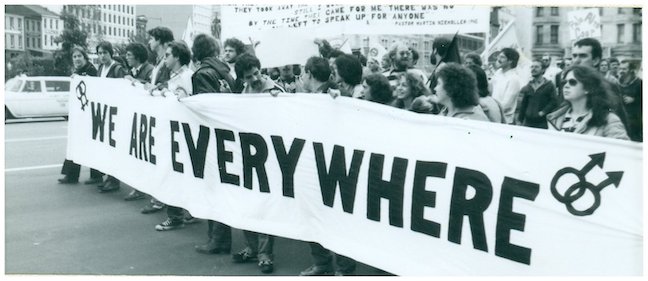
Protesting around the Nation
Say it Loud, Gay and Proud!
Cities organized local pride parades celebrating the gay community and commemorating the Stonewall Riots each year.
"Hope will never be silent."
- Harvey Milk, 1978
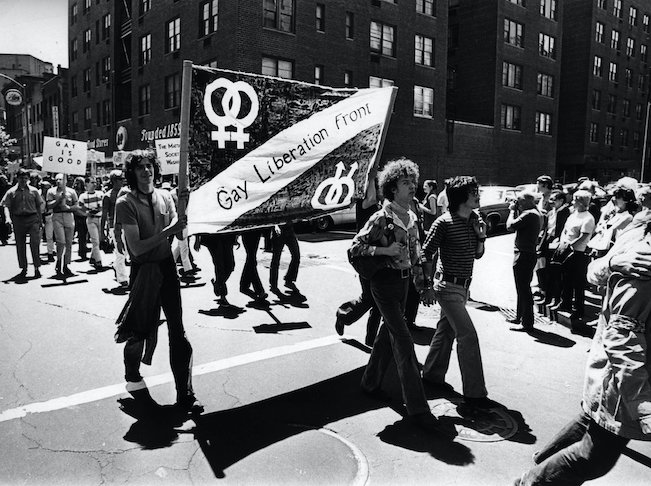
New York City's first gay pride parade after the uprising at Stonewall, June 1970, New York Times
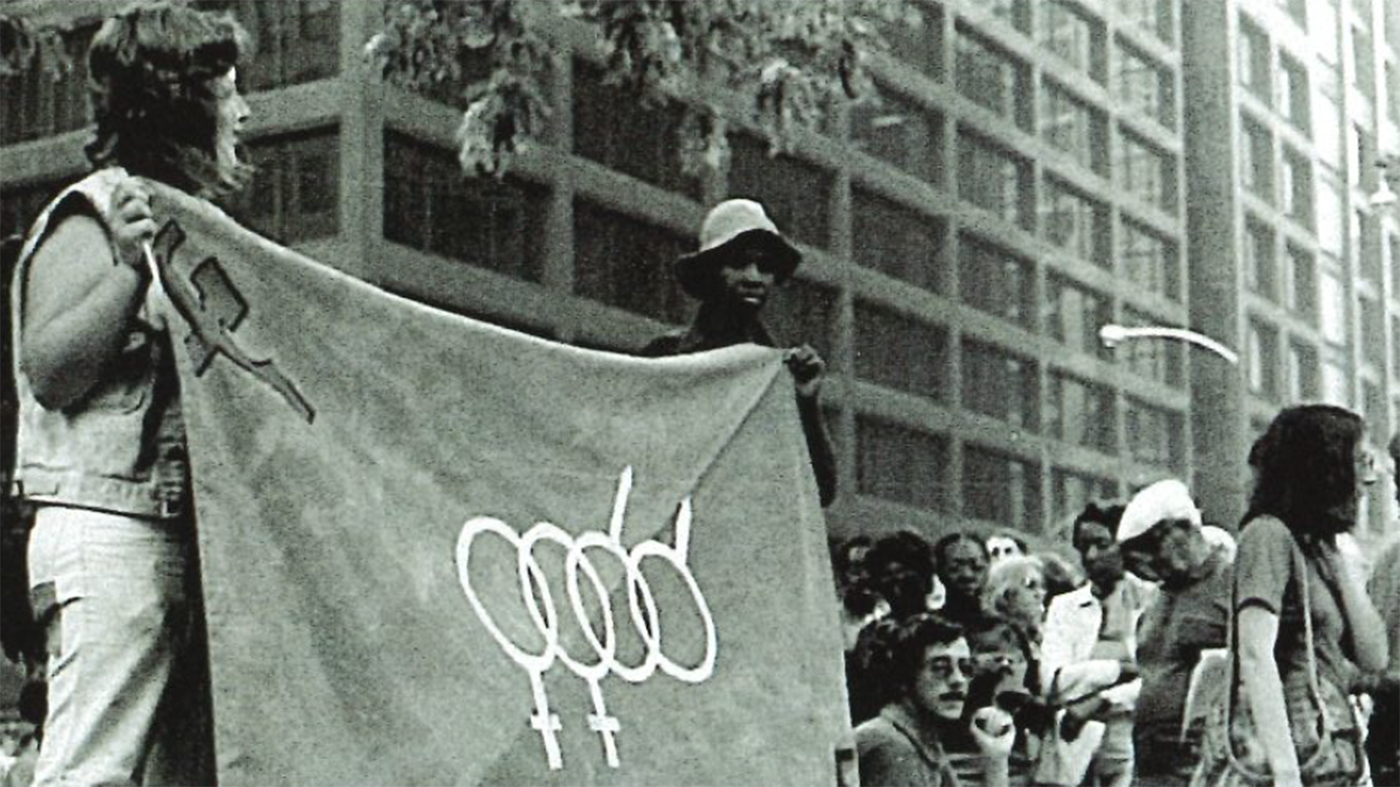
The first Chicago Pride march, 1970, WTTW
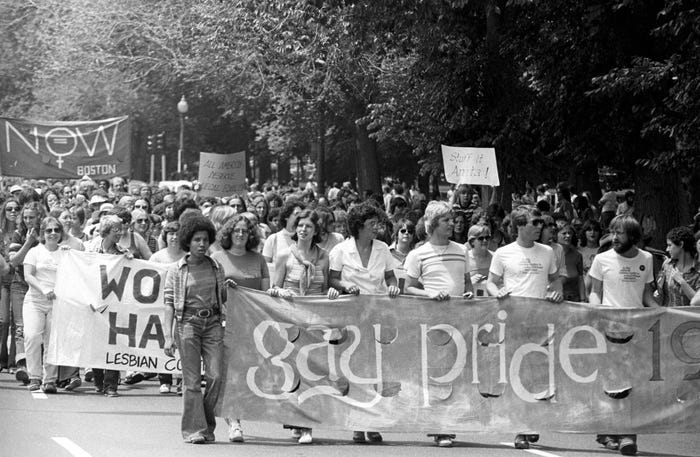
A Gay and Lesbian Parade in Boston, 1975, Insider
Equal Employment Opportunity Act
The Equal Employment Opportunity Act (EEOA) of 1972 did not specifically address discrimination against LGBT people. Therefore, businesses found ways to avoid employing them or to fire them without breaking the law. The gay community was not being heard.
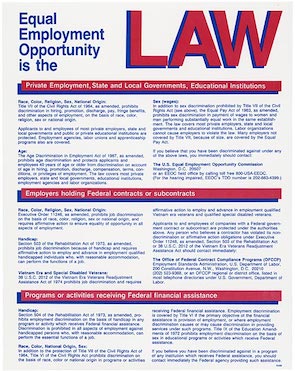
Equal employment poster, 1989, National Archives
We will no longer be satisfied with tolerance; we seek unconditional equality now
- Morris Knight, Founder of Gay Liberation Front, 1970
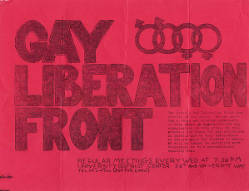
Gay Liberation front flyer, 1970, University Libraries
Communication Locally
The gay community tried to share their ideas of equality for all through many medias. Rallies, parades, newspapers, and magazines wanted to unite them, but it only occurred locally.
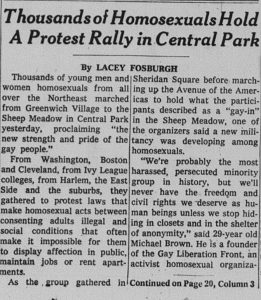
Pride Rally in Central Park article, June 29, 1970, New York Times
The Inspiration
LGBT activists, such as Milk, felt the need for the movement to be organized nationally. They tried many times to organize themselves. They were inspired by Martin Luther King and the 1963 March on Washington for Jobs and Freedom.
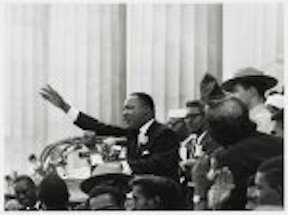
Martin Luther King March on Washington, August 28, 1963, Library of Congress
Header photo credit: LGBT March on Washington, October 14, 1979